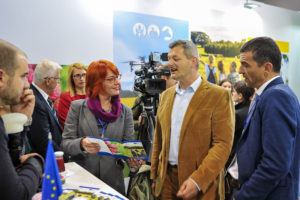
Technical Assistance on Mental Health Care and Drug Addiction Treatment Services in Prisons
Mental health and drug addiction are challenges for penitentiary systems all over the world. The purpose of this project was to tackle these issues in Turkish prisons and to bring the country’s penal services into line with international and European standards.

Technical Assistance for Support to the Local Human Rights Boards and Women’s Rights Awareness
Despite laws being passed in the 1990s to eliminate discrimination against women and a law to protect survivors of domestic violence being enacted in 1998, the country lags behind in implementing its national and international gender equality commitments. Women in Turkey continue to face challenges, with gender-based violence

Capacity Building for the Alignment with the Acquis in the areas of Agriculture, Rural Development, Food Safety, Veterinary and Phytosanitary Policy
This project improves the planning, legislative, and institutional capacity of Serbia’s Ministry of Agriculture , Forestry and Water Management part of the country’s preparations for EU membership. Project supports Serbia in the EU accession process through the preparation of the Negotiation Positions and drafting or amending the national

Support to the Development of the Penitentiary and Probation Systems in Georgia
Countries are looking for an effective and fair way to penalize criminals and prevent recidivism significantly. Within this scope, the overall aim was to reduce recidivism in Georgia and to develop modern and efficient criminal and probation systems to ensure public safety that protects the human rights of

Improvement of Legislation, Control and Awareness in Food Safety, Animal Health and Welfare in Ukraine
The project aims to support the implementation of the Association Agreement’s provisions between the EU and Ukraine concerning food safety, animal health, and welfare.

Technical Assistance for Promoting Social Inclusion in Densely Roma Populated Areas
It’s an obvious fact that there is a need to increase social inclusion in heavily populated areas, particularly in Rome, mainly by facilitating their entrance into the formal labour market. Within this context, the project aimed to support Rome’s population by improving the quality of education delivery, vocational

